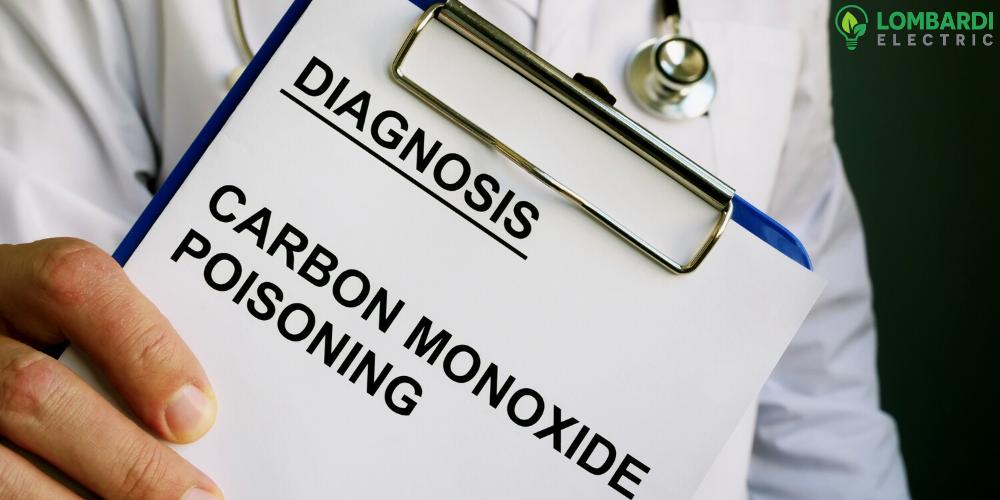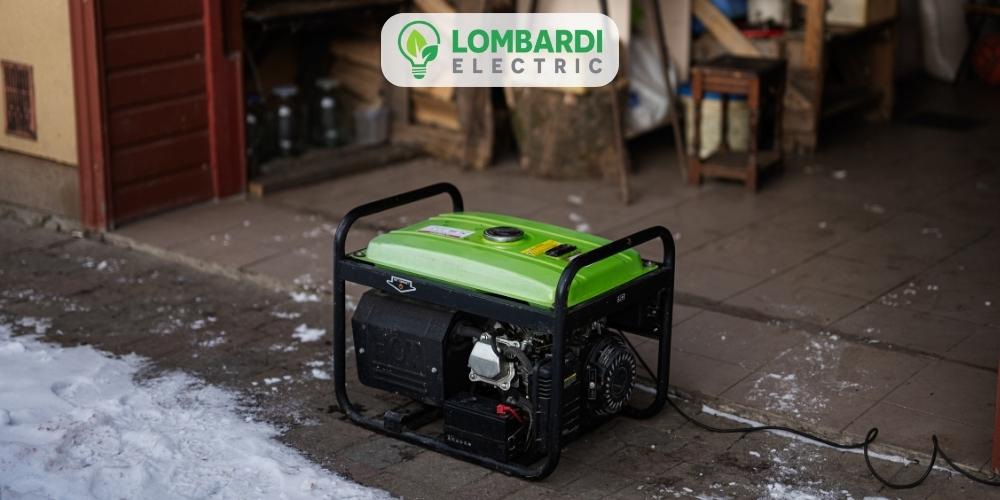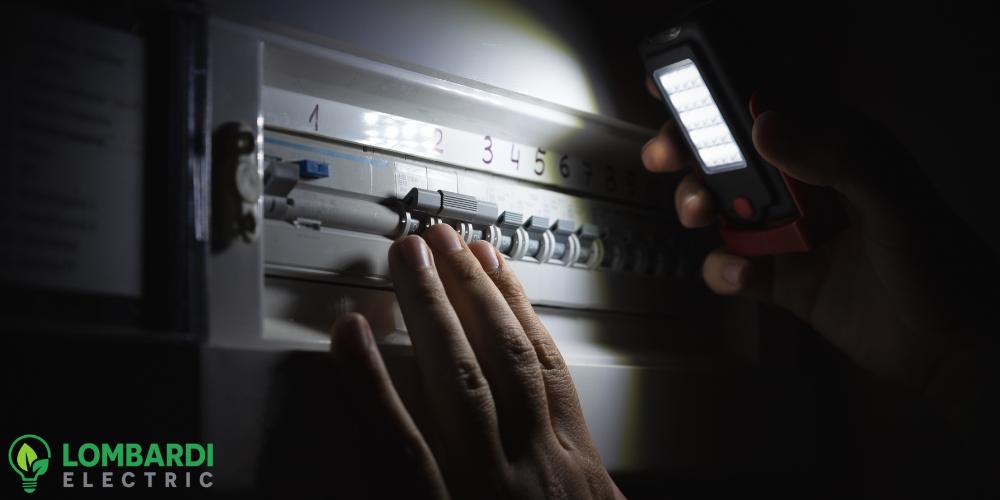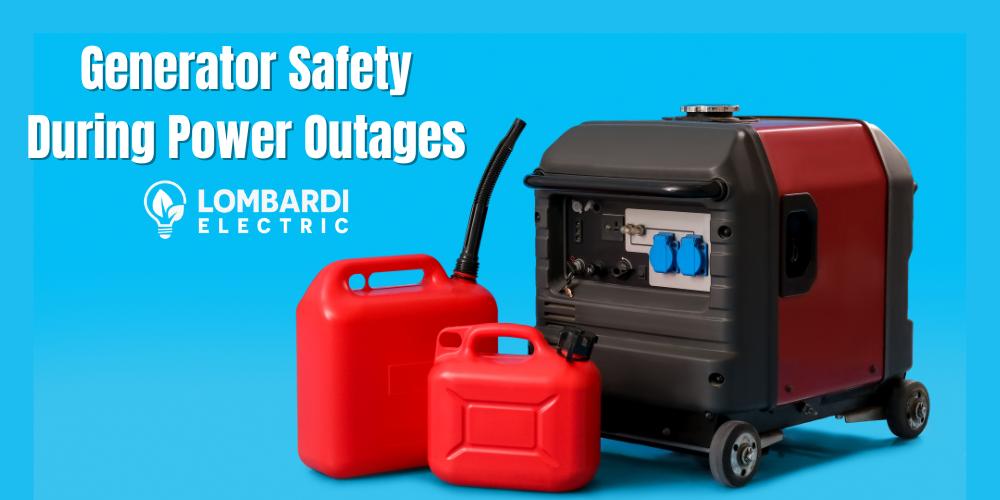If you’re a Louisiana resident, you know that our intense thunderstorms and hurricanes can knock the power out in entire neighborhoods and cities for as long as a week. Learning how to prepare for a power outage means understanding the importance of a home generator. It’s always a good idea to have an emergency power source, such as a portable generator. Portable generators may not be able to supply electricity to every appliance in your home, but they can definitely keep the most important appliances running, such as refrigerators and AC units, until the power is restored. All homeowners should know how to use a portable generator safely, though, in order to prevent carbon monoxide poisoning, fires, damaged equipment, and other dangers. Below, our Alexandria electricians break down basic generator safety tips.
Lombardi Electric is a residential, commercial, and industrial electrical service company based in Alexandria, Louisiana. Aside from that, we also offer top-notch “Generac” generators as well as solar panel sales, installations, maintenance, and repairs. Call 318-545-7575 to speak with one of our professional electricians today.
What is a Portable Generator?
A portable generator is a gas-powered device that serves as a temporary source of electricity during power outages. The most common type of portable generators are those that run on natural gas, such as our Generac generators. However, portable solar generators also exist which combine a portable power station with solar panels. These generators run on solar energy alone and are far more eco-friendly.
Portable generators typically have several outlets that you can plug important devices and extension cords into.
There are many different generators available. Our experts can help you understand how to choose a generator for your home.
How Much Power Can Portable Generators Produce?
If you’re in a situation where you need emergency power, you may wonder, how much power do portable generators produce? The answer depends on the size and type of generator. We answer, “What size home generator do I need in Louisiana?” in our blog.
Most generators cannot produce enough power to run an entire household during a power outage, unless you invest in one of the largest generators on the market. In general, portable generators range from 800 watts to over 500,000 watts.
In order to determine how many watts you need from a generator, follow this formula:
Add up all running watts for necessary household appliances + Add single highest starting watts from appliances you want to use = Total starting watts needed to run appliances.
For example, let’s say you have 4,500 running watts and 2,500 highest starting watts. This equals 7,000 watts. This means that you need a generator that creates a minimum of 4,500 total running watts and a minimum of 7,000 total starting watts.
During power outages, most people care about keeping their ACs and refrigerators running so that they can stay cool and keep their food from spoiling. Most refrigerators and freezers have a typical running wattage of 600 to 800 and a starting wattage of 2,200. The running and starting wattage for central air conditioning is often double that of refrigerators. Keep these approximate numbers in mind when shopping for the right generator.
Can Generators Cause Carbon Monoxide Poisoning?
Yes, generators can cause carbon monoxide poisoning especially if they’re not used correctly. Carbon monoxide (CO) is an invisible, odorless gas that’s created by burning fuel. Because CO is basically invisible vapors, it’s crucial for every homeowner to have a working carbon monoxide detector. These detectors can tell you if carbon monoxide is present in the home before anyone gets poisoned.
Carbon monoxide poisoning symptoms include headache, confusion, dizziness, weakness fatigue, nausea, vomiting, and chest pain. If you begin experiencing any of these symptoms while your generator is running, get to fresh air immediately, and seek emergency medical care.
Below, we break down how to use your generator safely during a power outage so that you, and your family, can avoid carbon monoxide poisoning and other dangers.

How to Use a Portable Generator During a Power Outage
If you don’t want to sit in the dark for hours or days, it’s important to have a full understanding of generator safety. Below, we discuss where to place your generator, how to connect your generator, how to avoid overloading your generator, how to store and use fuel for your generator, and how to shut down your generator.
Generator Placement
First thing’s first: putting your generator in the right place. Do not ever place your portable generator indoors, or your entire household will suffer from CO poisoning from the toxic engine exhaust. This means you should not place your generator in any completely or partially enclosed area, such as a locked shed or a garage, even if you think it has good ventilation.
You should always set up your generator outside at least 20 feet away from all homes or structures. Even at this distance, air flow patterns can blow carbon monoxide from the generator into open windows, doors, or vents. So it’s important that your home has a working carbon monoxide detector which can help prevent a major medical emergency.
If it’s raining and storming outside, you should do what you can to keep your generator dry, so as to avoid an electric shock. Many homeowners choose to place their generators outside, on a dry surface, under an open canopy-like structure to protect it from wet conditions.
Generator Connection
Next, it’s time to connect your generator to all the important appliances you want to run during the power outage. You can plug some appliances directly into the generator, or you can plug them in using an outdoor-rated extension cord. These outdoor extension cords must have an equal rating (in watts or amps) to the total connected appliance loads.
Do not attempt to power house wiring by plugging the generator directly into a wall outlet. This is called “back feeding,” and can cause utility workers or neighbors of the same utility transformer to suffer an electric shock or electrocution. If you really need to connect a generator to your house wiring, then you must call an experienced electrician at Lombardi Electric to install a power transfer switch.

Avoiding Overload
Power outages are definitely stressful and inconvenient. People sitting in the dark want more than anything for their generator to power every single appliance, but depending on the type and size of your generator, you likely cannot power everything. So it’s important to avoid overloading your generator.
Be sure to calculate all power requirements of the home appliances you want your generator to run, and then make sure that your generator can produce more power than required for the appliances. We have included a basic formula above that can help you determine this information.
If your appliances require more power than the generator can provide, then the generator could blow a fuse or the connected appliances can become damaged.
Safe Storage and Usage of Generator Fuel
Firstly, your generator instructions should include the specific fuel recommended for use.
If you need to refuel your generator, turn it off and let it cool down before doing so. If you spill fuel on hot engine parts, they could catch fire, and you could suffer burn injuries.
Be sure to store fuel in an approved safety can outside of the home, either in a locked shed or some other protected area. Some local laws may state that residents cannot store or use fuel, so be sure to contact your local fire department for details.
Gasoline spilled on the ground can potentially catch fire by an appliance’s pilot light. Electrical switch arcs in an appliance can also potentially cause a fire to ignite if gasoline spills. Always be careful with the use and storage of flammable liquids, like gas.
Shutting Down and Maintaining the Generator
In order to safely shut down a generator, unplug and turn off all connected appliances. Then you can shut it off. Before storing a generator back in your shed or garage, be sure to drain the gasoline in a safe place.
In between generator uses, it’s also a good idea to conduct general maintenance. For example, inspect the oil and fuel filters, oil level, oil quality, and spark plug. Generators often sit unused for months in between emergencies, so it’s also a good idea to run the generator every once in a while to ensure optimal functioning during power outages.

Call Lombardi Electric Today
If your home is experiencing frequent power outages that aren’t related to storms or city-wide power issues, it’s important to hire an experienced electrician from Lombardi Electric to get to the root of the issue. Additionally, it’s important to invest in the best whole-home generator in Louisiana for power outage emergencies. Luckily for you, our Alexandria electricians offer the number 1 selling brand of standby generators: Generac. Call 318-545-7575 to get a free Generac quote today.
